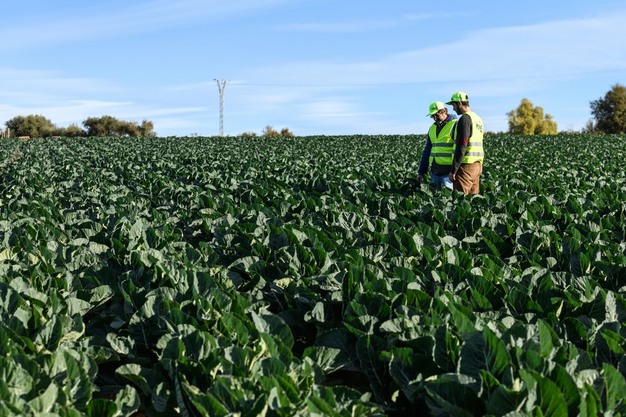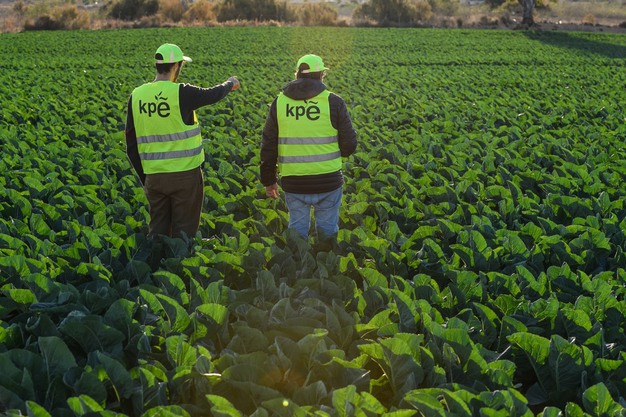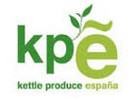The demand for brassicas and leafy vegetables, among other open ground products, has generally been good so far, and with reasonable prices. While cauliflower prices were exorbitant at the beginning of the season, they have been stabilizing, although there could be a shortage again. Meanwhile, the area devoted to free production, outside of programs, continues to decline. This was all explained by Juan Manuel Ruiz, commercial director of Kettle Produce Spain.
"The demand was especially high at the beginning of the season due to the early end of the productions in several European countries and the various problems caused by the weather. Afterwards, the demand has generally remained reasonable, at the expected levels for the different times of the year," says Juan Manuel Ruiz.

"The problem is that you cannot supply what has not been produced, which is what we had to deal with during the first half of the vegetable campaign; nor can you sell everything and at normal prices when the supply piles up, either due to the influence of the weather or to lack of planning, which is often linked to insecurity in the supply of irrigation water," he says.
According to the commercial director of Kettle Produce España, we are having an atypical winter, with abnormal temperatures, a wide thermal range and a very significant lack of environmental moisture, which has caused different varieties not to behave as expected in terms of growth cycles or yields.
"It must be taken into account that, for example, some varieties are planted expecting a 'normal' temperature range in January or February, but we have practically had spring weather during those months. However, this situation has also been tremendously favorable for the quality of all products in general and has largely helped avoid the usual cryptogamic diseases."
Cauliflower prices stabilize, but there could be a shortage again
In the first months of the campaign, up until the beginning of 2024, the main competitors for Murcian cauliflower, such as French Brittany and other producing regions in Spain or the United Kingdom have had problems with the production, also due to the weather.
"This, together with the high demand and very little supply, has led to prices reaching absurd levels. The productions have been stabilizing, and the cycles have been advanced, which has led to there being a bit more supply, but that could also lead to some shortages in the coming weeks. Cauliflower is very sensitive to weather variations, since its cycles can be strongly affected, both positively and negatively, very quickly," says the commercial director of Kettle Produce España.
"We have to forget what prices were like in the past"
"While it is true that the game of supply and demand will always impact the price level, it is true that most buyers are realizing that currently producing, even more so within the context of general inflation we are experiencing, does not allow to drop below certain levels and that comparisons with previous years lack validity and rigor, as the conditions of cultivation, costs, and others are totally different," highlights Juan Manuel Ruiz.
"If we want to have quality products and offer also a good service and food safety, we have to forget about the prices that were paid in the past," he says. "The impression we have is that this message is being accepted and assimilated by the retail chains, because it is the only way that the shelves can continue to be filled with products at reasonable prices for the consumer, but also for the producers."
The area devoted to vegetables for the free market continues to decline
According to Juan Manuel Ruiz, there has been a reduction in the planted area, not only for broccoli and cauliflower, but also for other products. "There is a deficit of water resources for which no real and effective solutions have been found so far in certain areas. Moreover, the lack of profitability of the products is financially suffocating for the growers and there is also a lack of generational replacement, among other factors."

"Plantations are increasingly subject to scheduling, and the number of unregulated plantations continues to decline. I think that collaboration between producers and large retailers and planning according to schedules and needs is very positive. In this way, it becomes easier to seek a certain balance between supply and demand, which would be good for everyone, even for those who like to plant freely, whose number is falling every year," he says.
"It is also true that the weather can frequently disrupt any plans, and there's little to be done about it. This doesn't mean that we cannot guarantee the supply; on the contrary, our buyers have no need to worry, but those who speculate or who don't work with schedules can be more affected at certain times," he says.
The greatest challenges in the short and long term
"Perhaps one of the greatest challenges for this and future campaigns is finding the necessary specialized workers," says Juan Manuel Ruiz. "Also, the constant increases in costs are making it more and more challenging to stay competitive in this business, and for entrepreneurs and producers to survive."
"Finding solutions to the endemic water problem in the producing regions, so that we can work and plan without the uncertainty we are suffering year after year, is also vital for the development of the sector. Lastly, if we want a sufficient supply of fresh, healthy, quality products, the prices received by growers must be determined by the actual costs," says Juan Manuel Ruiz.
 Juan Manuel Ruiz Soler
Juan Manuel Ruiz Soler
Kettle Produce Spain
Autovía A7. Km. 605 Las Flotas
Alhama de Murcia, Spain
[email protected]
www.kp-spain.com










